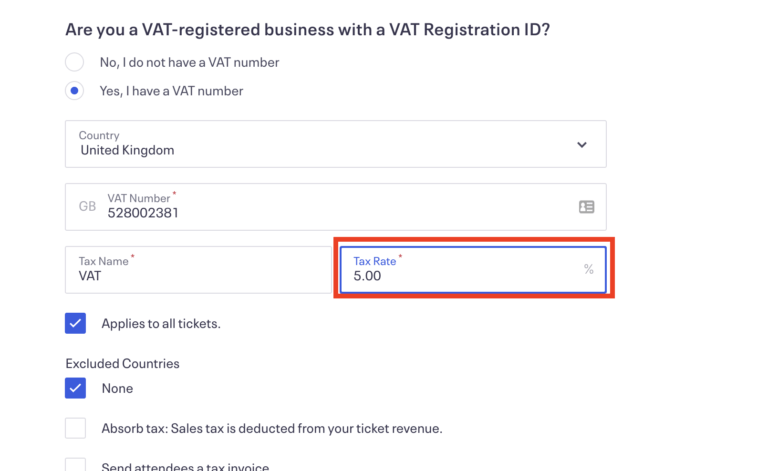With so many projects launching on Cardano at the moment, all in their early stages of development and all fighting for our attention, it is hard to disseminate between a good project and a bad project to consider supporting vocally online on social media or financially in terms of participating in fundraising rounds.
This is the reviewing framework that we use to grade projects that we are looking at when it comes to doing interviews and writing content. This is based on work done by Johnathan Habict article quantitative analysis of blockchain projects.
This framework is based off
- Product Analysis
- Community
- Traction
- Developers
- Trading
- Network
- Transparency
Project Evaluation - Product Analysis
What is the project and what is the problem that the project is trying to solve? How are they going to solve the problem?
White Paper
Does the project have a whitepaper, an outline or a technical overview of what is going to be built which describes the opportunity and solution in detail? Is the document in an accessible language that the majority of readers can understand?
- No Whitepaper
- Very little detail in the whitepaper or overly complicated information.
- Well written, presented in and accessible language
Competition
What is the competition like for their product? Is the project launching into a flooded market or do they have the first mover and innovator advantage? If there are hundreds of similar projects, how can they stand out to make your participation in the project worthwhile?
- Lots of competition
- There is competition but it has unique selling propositions to differentiate it
- Market leader with no competition
Value
Is there much value in the project that is being delivered? The project could be just a clone of Uniswap or another existing DEX. What is the point and what extra value are they providing to the ecosystem.
- Doesn’t provide much value, centralised solution and doesn’t bring much to the ecosystem
- Solves and with a some need
- Solves an existing problem that is in need by users
Roadmaps
Is there a clear outline of what needs to be designed, developed and done? When does the team plan to deliver on the project and are the timelines realistic?
- No road map or project plan
- Road map but hasn’t hit any roadmap milestones
- Detailed longterm 2 year road map and hitting milestones, late or on time.
Project Evaluation - Community
The community and social aspects of many projects drive adoption and create advocates/ambassadors for the project. Does the project have a clear line of communication? Is the website up to date? Are social channels used? Can the team members be reached and can people get replies to the answers? Has the team engaged with experienced advisors that have worked on and released other notable projects? Has the team engaged with influencers? Tiktok?
Online
How well is the website put together?
- Website is a coming soon landing page
- Detailed information
- Detailed information, FAQs, ways to engage with the project, help desk, forums
Socials
Is the project on social media? Different audiences use different social networks. Twitter, Facebook, Twitch, Instagram, Clubhouse, Discord, Reddit or Tiktok. There are a lot of networks to cover. Can you find the project across all the mediums?
- No social engagement
- On a few social networks
- On all socials pumping out great content and engagement with the community
Communication
What is teams communication like? Have they done a large NFT drop or token sale and now have gone AWOL?
- Are nowhere to be seen
- Sporadic email, or social engagement with community members asking questions and not getting answers
- Engaged all the time. Do these people have a life or are they working? They’re seriously on all channels all the time. WTF. How.
Advisors
Advisors give the project creditability. Having a big name advisor can give the project credibility. The person could be an angel investor or the person could be giving advice on the development of the project.
- No engagement with existing blockchain advisors
- Engaged with small or unknown blockchain advisors
- Has engaged with Satoshi Nakomoto for their project
Influencers
YouTubers and FinInfluencers are the modern heralds of many projects. TikTok influencers have made careers out of making 1-minute videos about DogeCoin. Others have gone to jail for shilling BitConnect.
- No engagement with influencers
- Has a little engagement with various influencers
- Is all over YouTube and Tiktoc Finluencer
Project Evaluation - Traction
Is there traction in the developer community? If the project has launched and released some code, are other developers and is the community contributing to this?
Are the improvement proposals being suggested to the project? Are there other developers forking the project and creating pull requests to have their code and additions merged to the main project? Eagerness from the community and other developers to contribute to a project is a good indicator of a project gaining traction.
Development
Where in the development lifecycle is the project.
- Nothing released
- MVP released
- Working product that we can use right now
Partnerships
Has the project formed partnerships with other projects to create integrations? Other successful projects creating integrations or bridges to the project in question is a good indicator of acceptance. Other projects may want to tap into liquidity or services that the project can provide.
- no partnerships with other service providers or projects
- partnerships with 1 or two projects but may be unknown projects
- So many partnerships you can’t keep up.
Code
Is there code that you can see for the project?
- No code shown & no dev team verified
- Little code shown in repos and some exposure to a development team
- Git Repos, live demos on testnet, smart contacts verified transactions, working product
Project Evaluation - Developers
GitHub
- Little to no activity on github, developers can’t be verified
- A handful of commits or commits from one or few developers
- engaged developers, many commits, many pull requests
Developer Engagement
- Only 1 month with of commits
- 6 months or less of commits
- 1 year or more commits and looks like mature code
Technical Knowledge
There is quite a learning curve and technical knowledge gap when it comes to Cardano and developing on the blockchain, especially when it comes to smart contracts.
- Team show no technical knowledge
- Team shows that the know Haskell and Plutus and can answer technical questions
- Pioneering the development in Cardano writing smart contracts and creating solutions
Project Evaluation - Trading
Is there a token for the project? Can it be accessed and is it tradable? Depending on where the project is in its lifecycle, you may be able to access a native token to use on their platform.
Token
- No project token
- Centralised token with only a handful of people holding it
- Decentralised token that many people are holding or trading
Exchange Listings
- Token is not on any exchange and can’t be accessed by users
- Token listings are limited. Low liquidity and low volume in trade
- Token accessible on many centralised and decentralised exchanges with lots of liquidity
Project Evaluation - Network
Looking at the network effect and reach of the project. A few website indicators and APIs can pull in some data about how far-reaching the project is.
Google Trends
- Low trends activity
- Mid level activity
- High level of actiity
Twitter Mentions
- Low twitter mentions
- Mid level activity on Twitter
- Everyone is talking about ti on Twitter
Followers on Twitter & Reddit
- Less than 1000 followers on Twitter and Reddit
- 1000-10000 followers on Twitter and Reddit
- Over 10,000 followers on Twitter and Reddit combined
Project Evaluation - Transparency
Has the team been revealed or are they a mystery team? The Cardano community likes transparency and accountability. This metric looks at if the people behind the project have been revealed or if there is a direct person that users can look at in regards to being a face of the project.
Team transparency
Has the team been doxxed?
- No team members have been revealed.
- A few team members appear on the website a few details on LinkedIn
- Full team profiles and has gone through Project Catalyst process
Team Participation
Are the team members participating in the community? Have the submitted a Project Catalyst proposal and gone through the entire process to get funded?
- No Cardano Community participation
- Contributions in terms of open source projects or Project Catalyst
- Winning and delivering on Project Catalyst proposals or delivering key tools and resources for the Cardano ecosystem. e.g Nami wallet, NFT-maker Pro
Team Experience
What is the resume of the team like? Are the project owners prominent blockchain figures in the ecosystem? E.g the Founders of CardWallet have worked for the Cardano Foundation and CoinTelegraph.
- No previous experience in blockchain or working on similar projects
- Delivered small projects
- Launched their own blockchain or worked on a team of another blockchain project or multiple small projects
Projects that we covered in this podcast
- ADAXPro
- Cardax
- Meld
- VyFinance
Cardano Project Evaluation Presentation at Brisbane Cardano Meetup
You can also watch the presentation that we did at the October Brisbane Cardano Meetup
Staking Cardano (ADA)
How to Stake ADA on Yoroi Wallet
Delegate ADA on Daedalus
Additional Cardano Resources
Podcast: How to Stake Cardano & Understanding Rewards Payout
Calculate How Much ADA You Will Get From Staking
Follow Us
Subscribe to YouTube
Join our Facebook Page
Discord Server
Telegram Group
Delegate to ADAOZ
Use ticker: ADAOZ
ADAPools.org/ADAOZ






